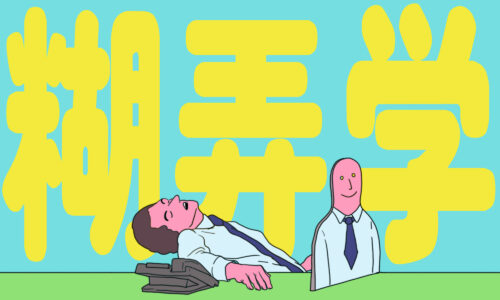‘The higher they fly, the harder they fall’ — Phrase of the Week
The founder and chairman of Evergrande has been placed under investigation by Chinese authorities.

Our Phrase of the Week is: The higher they fly, the harder they fall (眼看他起高楼,眼看他楼塌了 yǎn kàn tā qǐ gāo lóu, yǎn kàn tā lóu tā le).
The context
Xǔ Jiāyìn 许家印 (a.k.a. Hui Ka Yan), the founder and chairman of China’s embattled property giant Evergrande, is under investigation.
On September 28, Evergrande confirmed that Xu was suspected of crimes by Chinese authorities, placed under so-called “mandatory measures” (采取强制措施 cǎiqǔ qiángzhì cuòshī), and put under “residential surveillance.” It follows the arrest of several top executives in Evergrande’s wealth management business earlier this month.
Xu, age 64 — who likes to use the Hong Kong Cantonese romanization of his name, Hui Ka Yan — was born into a humble upbringing in a rural village in Henan Province. By 2017, he had topped the list of Asia’s wealthiest people compiled by Forbes magazine, with an estimated fortune of $42.5 billion.
Today, Evergrande, once the hallmark of his property empire, is the world’s most indebted property developer, with $300 billion in debt.
Xu’s arrest is the story that everybody is talking about in China this week. One article, published on the WeChat public account Data Bureau (数局 shùjú), evokes a well-known literary phrase to portray the plight of Xu and his company:
I saw him build a high tower, I saw him feast and make merry, but I saw, too, how his tower collapsed.
Evergrande’s “tower” has truly collapsed this time.
In recent days, the biggest story in the real estate circle is that Xu Jiayin’s inevitable demise has finally arrived.
眼看他起高楼、眼看他宴宾客、眼看他楼塌了。
恒大的“楼”,这次是真塌了。
最近几天,地产金融圈最大的热点就是许家印实锤靴子落地。
Yǎnkàn tā qǐ gāolóu, yǎnkàn tā yàn bīnkè, yǎnkàn tā lóutā le.
Héngdà de “lóu,” zhè cì shì zhēn tā le.
Zuìjìn jǐ tiān, dìchǎn jīnróngquān zuì dà de rèdiǎn jiùshì Xǔ Jiāyìn shíchuí xuēzi luòdì.
And with that, we have our Phrase of the Week!
What it means
Anyone with a high-school education in China will know the phrase I saw them build a high tower.
It’s the most famous line from The Peach Blossom Fan (桃花扇 táohuā shàn), a musical play and historical drama completed in 1699 by the early Qing-dynasty playwright Kǒng Shàngrèn 孔尚任.
The play is Kong’s best-known work. It’s a tragic love story set during the final days of the fall of the Ming dynasty. He and other playwrights at the time were fascinated with how and why the Ming fell, and what the rulers of the Qing could learn from it.
The original line from the play appears in the final scene:
Who was to know that it might so easily vanish?
I saw them build the splendid mansion,
Saw them feast and make merry,
But I saw, too, how the building collapsed.谁知道容易冰消?
眼看他起朱楼,
眼看他宴宾客,
眼看他楼塌了。Shéi zhīdào róngyì bīngxiāo?
Yǎnkàn tā qǐ zhūlóu,
Yǎnkàn tā yàn bīnkè,
Yǎnkàn tā lóu tāle.
In modern Chinese, the longer phrase is often shortened to:
The mansion rose, and then it collapsed.
眼看他起高楼,眼看他楼塌了。
Yǎnkàn tā qǐ gāolóu, yǎnkàn tā lóu tāle.
It’s a colloquial way to describe someone who has dramatically fallen from grace due to their own greed or corrupt behavior.
In the case of Xu and Evergrande, the phrase is also a play on the word for building (楼 lóu): Lou is the crumbling mansion of The Peach Blossom Fan, embodying the empty half-built apartments blocks, and also represents Evergrande’s failing property empire.
Xu has lived a life of excess, so it was only a matter of time before he fell foul of the authorities, according to many observers in China. He and his business empire, like the Ming dynasty and many empires before him, had become corrupt and eventually collapsed.
Some keen observers noted that Xu’s fate was predicted in another phrase, a couplet that Xu was pictured with during a visit to his hometown in 2018:
Wealthy and prosperous like blooming peonies (which wither quickly), living a long life like pine trees and cranes.
牡丹富贵,松鹤长寿。
Mǔdān fùguì, sōnghè chángshòu.
In other words, an obsession with excess, wealth, fame, and luxury will get you in trouble. Another Phrase of the Week was evoked in the story of the fall of Xu: The other shoe has finally dropped (靴子落地 xuēzi luòdì), an American idiom that means the inevitable has finally happened.
The mansion rose, and then it collapsed is similar to the English idiom The higher they fly, the harder they fall, which is how we translate this week’s Phrase of the Week.






